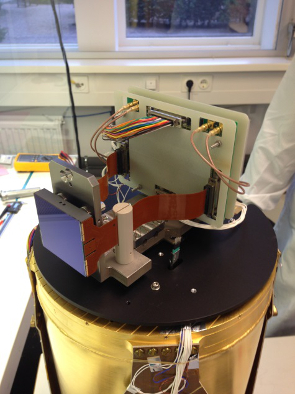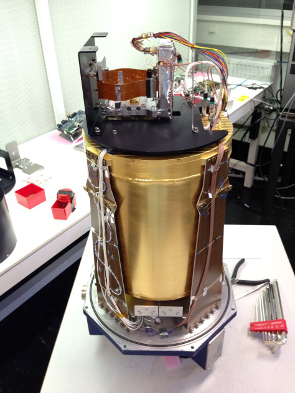Payload Validation Section (SCI-FIV)
The Payload Validation Section in the Instrumentation Division of the Future Missions Department provides support to present and future missions at different stages of their lifecycle.
The main activities of the section are:
Support to the Future Missions Department (SCI-F): the main goal of this work is to validate the technology for future missions in order to reduce the risk to the overall program before the mission is adopted (this occurs at the end of Phase B1). The synergy between the mission study team, the technology development activity technical officer, and the test team is optimised. This approach was first adopted with Euclid for the development of dedicated CCDs (CCD273) for the mission. The PLATO mission is also benefitting from this approach to technology validation. In addition to activities related to specific missions, the section also addresses technology validation for the longer term, one particular area of activity being near-infrared detection systems.
Support to the Projects Department (SCI-P): projects in development may request specific tests to be performed to ensure control of some aspects that are under ESA's responsibility or that have an impact on items for which ESA is responsible. Euclid, PLATO, and CHEOPS are examples of missions that have requested such support.
 |
 |
| The Euclid VIS instrument CCD being integrated into a cryostat prior to cold performance testing. Credit: ESA | |
Support to the Operations Department (SCI-O): the activities are dedicated to missions in operation, with a typical activity being cross-validation on ground of effects observed in the on-board instruments. The Gaia mission uses this support.
Support is also given to scientists in the Science Support Office (SCI-S) for the implementation of small research programmes with internal ESA funding.
Due to the long-term heritage of the Science Directorate laboratories, most of these activities presently focus on detector technology, however in the longer term, the scope of the section is envisaged to broaden.
The Payload Validation Section can rely on an extensive list of facilities covering a wide range of capabilities.
